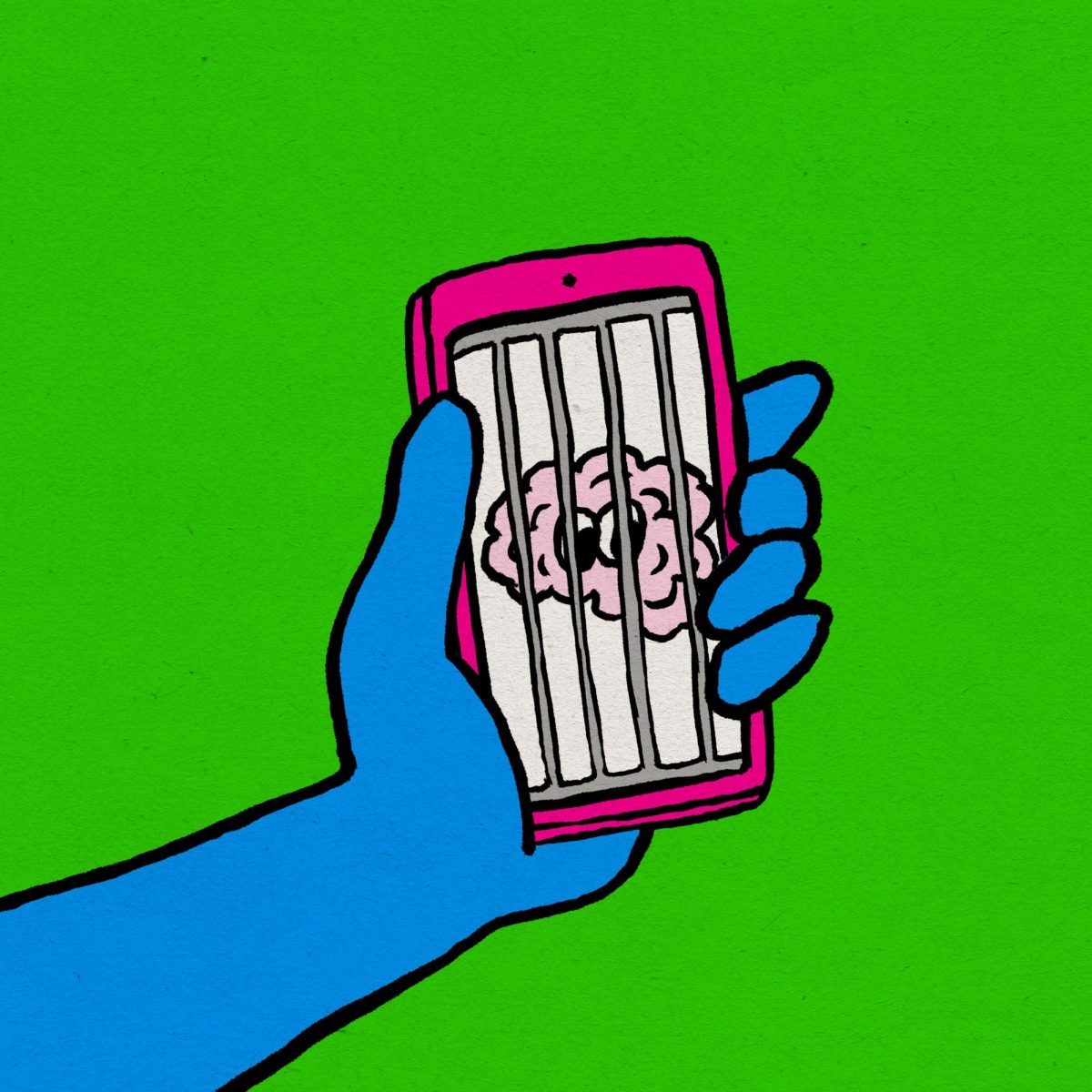I think I love rotting my brain. By this I mean I could spend a whole day scrolling on TikTok. I am well aware this is probably a problem. But, as the well-known phrase goes, the first step to beating addiction is admitting you have one yourself.
When one shows a ‘boomer’ a TikTok, one of the first questions they often ask is “Who are they? Do you know them?” No, Mom, I don’t know them. But this interaction brings something to light; why are we watching videos of people we don’t know? Are our elders right? Is that darn phone stuff just brain rot?
Brain rot is a term associated with what happens to the brain of someone who is ‘chronically online.’ It is, in essence, the idea that constant exposure to certain content via the internet can turn someone into an idiot.
If you aren’t familiar with the term, you can use this simple exercise to see if you have it yourself. As TikTok creator Joel Cave says, “One of the easiest ways to tell if someone’s brain has been destroyed by social media is to notice how often they reference internet jargon.”
So, how many of the following words do you know, and how many do you use on a daily basis? If you use at least four of these terms, you probably have some degree of brain rot. If you use most of them, you may want to seek help: Pookie, coquette, cap, delulu, opps, NPC, ick, bussin, bet, sus, rizz, fire, cheugy, snatched, gyatt, slaps, CEO, camp, tea, G.O.A.T. and many more.
Almost all of the terms and phrases discussed above hail primarily from our beloved TikTok. Part of the reason this app is so addictive is because it’s curated to one’s individual interests. Each of our TikTok “For You” pages looks different because the app analyses thousands of signals from users to determine what kind of content we most want to see. This is why the app can be so irresistible and, at the same time, isolating. With TikTok, nobody else sees the exact same content you are. Have you ever had to explain a joke to friends who hadn’t seen the same viral video as you? In a way, our experienced realities are further apart than they ever have been before.
For those who are unfamiliar with the app, most TikToks are 15 to 30 seconds long. Each video may not relate to the next one. On TikTok, you can get a happy video about a kitten being rescued from a tree, followed by a live stream of a police chase, followed by someone’s review of a Chamoy Pickle. Three very different emotions are elicited in the span of 30 seconds.
The scale of this addiction is what may be the most concerning. The United States has 148 million monthly TikTok users, according to Sprout Social, and these users are addicted. The average American TikTok user spends 23.3 hours a month on the app. For people under 21, this number is almost certainly higher. So if TikTok does have harmful effects on our brains, then its effects are widespread and most prevalent among the youth.
But one might say that spending hours rotting the brain has been an American pastime for decades. Television’s proliferation in the middle of the 20th century did not come without controversy. It was widely thought that T.V. was destroying the brains of America’s youth. Even reading newspapers were worrisome to many, as it wasn’t face to face interaction.
We have to ask if modernity has made isolation too easy. Would a pilgrim be able to comprehend the fact that one day a person could DoorDash popeyes from the comfort of their own home? Or that one day a person could obtain any piece of information imaginable — without having to talk to anyone — faster than they could say “smallpox!”? We really are living in an age of decadence.
The decadent age we live in may be better than those of the past, but it certainly falls short on the levels of social interaction our ancestors had. According to experts, the impact of TikTok on our brains is still “little understood”, per The Guardian, but the little data we have does suggest the brain rot theory to be true.
For example, during the pandemic, many younger people used TikTok as a replacement for social interaction. However, TikTok does not fulfill all the requirements of true human connection, as it’s through a screen and not in person. TikTok may make people feel connected, but this feeling rarely translates to real life when needed. In addition, the health-related risks of social isolation are well documented. According to the National Library of Medicine, social isolation and social media use go hand in hand and are correlated with increased levels of anxiety and depression.
Whether one is concerned with social isolation, emotional dysregulation, attention span, productivity, mental health or physical health, it is unlikely that a long binge on TikTok will help. The most immediate effect TikTok has is its ability to make time go by faster. But since the pandemic, many have realized life is precious, and it is therefore meant to be spent living and not observing. The U.S. government’s proposed “TikTok ban” may not be such a bad thing after all.












